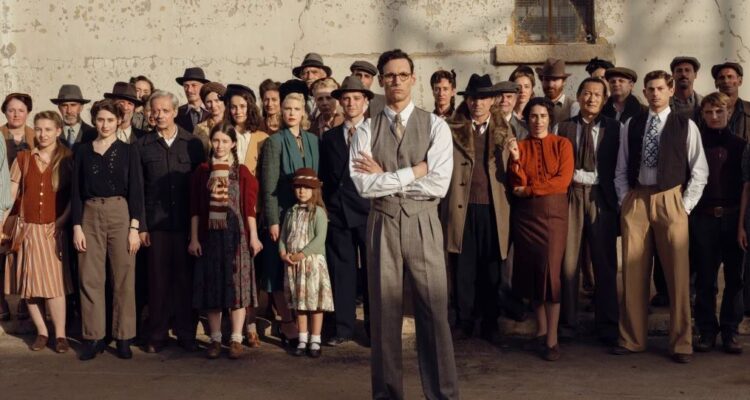The shocking history of America’s collaboration with Germany during World War II rears its ugly head in two very different series that have recently arrived on our streaming services. One is Ken Burns’ three-part, 398-minute documentary, The U.S. and the Holocaust (2022, SBS On Demand), on which he shares the director credit with longtime collaborators Lynn Novick and Sarah Botstein.
The other is the seven-part adventure drama, Transatlantic (2023, Netflix), the latest offering from showrunner Anna Winger, a work of fiction that is inspired by real people and real events, by American writer Julie Orringer’s 2019 novel, The Flight Portfolio, and, uncredited, by Casablanca (1942). Based in Berlin, the American-born Winger was also responsible for the memorable Unorthodox (2020) as well as the acclaimed Deutschland 83 and its sequels (on Stan, 2015 – 2020).
Appreciating that WW II is far too large a subject for any single film or extended series, the widely-respected Burns has previously surveyed it from other angles: in The War (2007), which introduces itself as “the story of four American towns and how their citizens experienced WW2”; and in Defying the Nazis: The Sharps’ War (2016), about a couple from Wellesley, Massachusetts, who went to Europe to help refugees fleeing the Nazis.
Transatlantic deals with the same subject matter, but is best viewed through a different filter. As Winger has explained, it’s born of another storytelling tradition. “I have very clear influences,” she told the National World website, “the movies that were made in the 1930s and ’40s by people like Billy Wilder and Ernst Lubitsch, movies like Casablanca, The Great Dictator, To Be or Not to Be, movies that use humour and romance and all the genre tools of entertainment in order to process complicated issues.”
Read the article by Tom Ryan in The Sydney Morning Herald.

